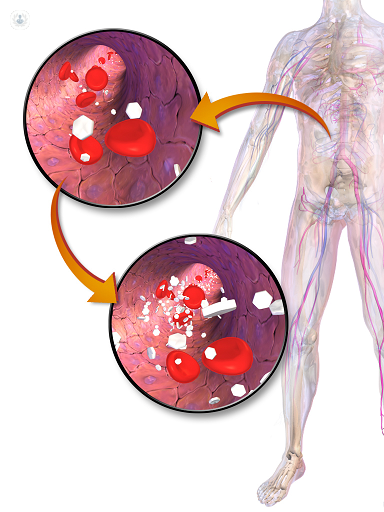Diabetic nephropathy: what it is and how to treat
Written by:Diabetic nephropathy is the damage they cause kidney high blood glucose levels. It can affect any diabetic patient with significant numbers of hyperglycemia. The main treatment involves controlling blood sugar, blood pressure and lipids, in order to avoid advanced stages of the disease requiring transplant or dialysis.

Diabetic nephropathy: what
Diabetic nephropathy is caused by the damage they can maintain high levels of glucose in the blood to the kidneys. Thus a series of structural and functional changes occur causing loss in the ability to filter causing them to fail.
Diabetic nephropathy patients suffering
Diabetic nephropathy occurs in both type 1 diabetes, also called juvenile or insulin-dependent, and type 2, called the adult, and in other secondary forms of diabetes mellitus where there is extension of diabetes with significant numbers of hyperglycemia. There are known risk factors that are directly related to the onset and progression, in addition to poor glycemic control:- age- Poorly controlled blood pressure- Genetic susceptibility- obesity- smoking
Symptoms of diabetic nephropathy
Often the first symptom of diabetic nephropathy is the accumulation of fluid (edema) in areas of the body declines. There may also be loss of sleep, appetite, general weakness, headache, nausea, vomiting, higher figures than usual voltage and may also be cases of foamy urine.
Treatment of diabetic nephropathy
The mainstay of treatment in Nephrology 's disease diabetic nephropathy is to control blood glucose (blood sugar), blood pressure and lipid profile (blood fats). This can be achieved with lifestyle changes such as:- Changes in diet- Properly take drugs- Adjustment in diabetes therapy (if necessary)- Treatment and management of urinary tract infections or other infections that need to be treated with antibiotics.
They are generally effective results with this treatment. It depends on the stage at which the disease is diagnosed, to try to minimize kidney damage and / or slow the progression of the disease to more advanced stages requiring kidney transplant or dialysis and avoid complications in other organs.



